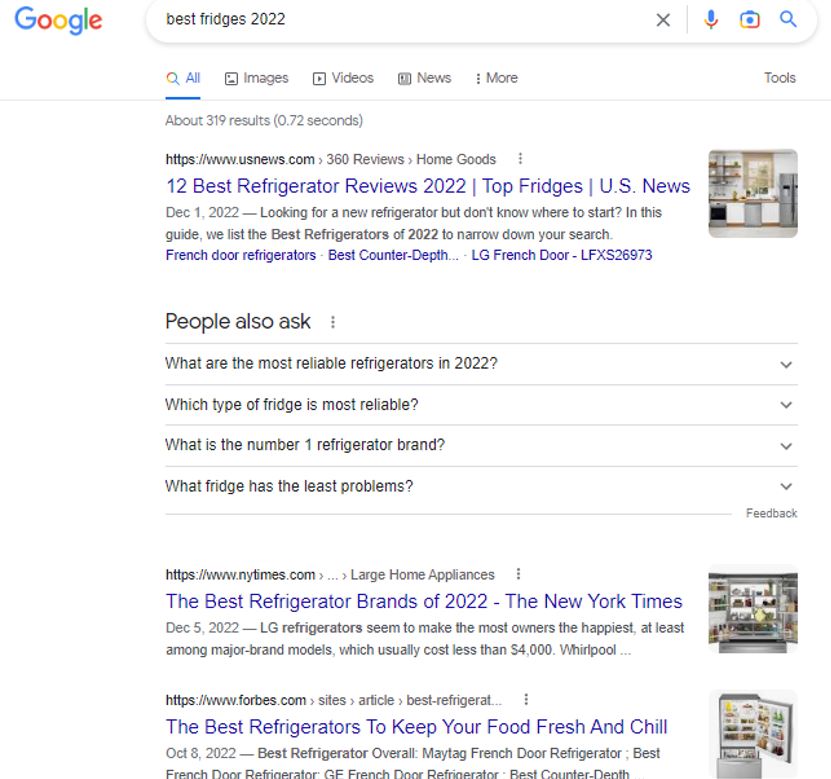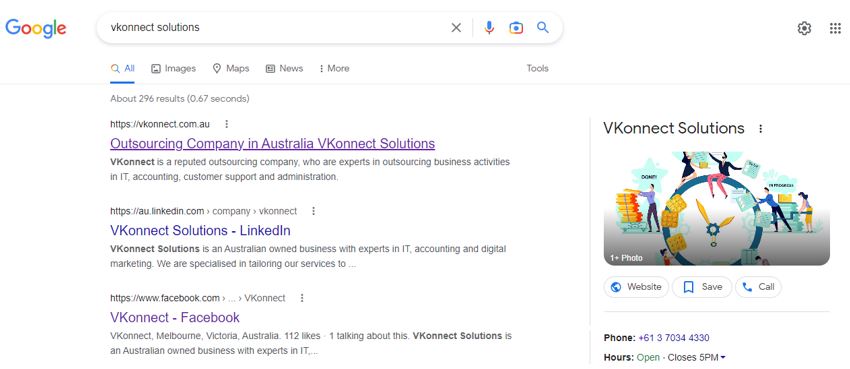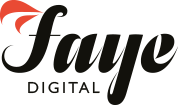
What is search intent and how does it impact SEO?
What is search intent?
Search Intent (also known as “User Intent”) is the main goal a user has in their mind when typing a query into a search engine. In many occasions, users are searching for a specific type of answer or resource as they search.
You can take pizza for example. Searching for a pizza recipe, searching for a takeaway pizza, and searching for the history of pizza — these users all have different intents though they all revolve around the same overall topic (pizza).
With lots of improvements to its algorithm, Google can automatically interpret search intent and show results that align with it. The search engine often uses rich snippet results like the Answer Box and Knowledge Panel.
Because people’s queries reflect where they are in their buying journey, understanding search intent can help you create relevant content that aligns with the user’s search intent and increase conversions.
Why is search intent important to SEO?
For Google, the most important thing is to satisfy the search intent of the users. So, it becomes important for SEOs as well to craft content that matches user intent. If a searcher finds irrelevant information when he/she searches for a term, that is a signal to Google that the content provided to the searcher in the search results doesn’t match the intent of the user and as a result, Google will degrade your content.
Imagine how frustrated you would be if you wanted to learn to play guitar, but your search results tried to sell you various types of guitars instead? You can avoid this frustrating experience by adding user intent to your SEO strategy.
Sound knowledge in search intent will help you to:
- Do extensive keyword research to target search terms that align with your business’s and your audience’s needs.
- Create content that answers user questions.
- Create user and search engine-friendly pages.
- Get a higher position in the ranking by creating valuable and relevant content for users.
- Create content that search engines can easily understand.
The 4 types of search intent
There are a few distinct types of search intent. We’ll go into the four most commonly used ones:
1. Informational

Let us start with the informational search intent. Most people who search on the internet search for information about a topic or an object. This could be information about a disease, information about pets and information about sports, and so on. Searches with informational intent are made of a question or request to know more about a certain topic/object.
For example, Google knows that someone who is looking for ‘Mayonnaise Sauce’ is most likely looking for recipes and not for the history of Mayonnaise Sauce. Google also knows that for certain search terms like ‘how to build a fish tank’, it is helpful to add images and videos about the topic.
Examples of informational intent:
SERP URL – https://bit.ly/3V0ELO
SERP URL – https://bit.ly/3FBp0HT
SERP URL – https://bit.ly/3W4E3AF
SERP URL – https://bit.ly/3PwsK1K
2. Preferential/Commercial Investigation

Preferential or Commercial investigation starts after the information-gathering stage. Before purchasing a product or service after learning about the product/service (information gathering stage), the user starts the commercial investigation. At this stage, they are past the information-gathering stage of their research and filtered their options to a few choices. This usually involves comparing products and brands to narrow down the best option.
Let’s say, for example, you’ve decided to buy a laptop and do the research. You’re not sure if you want to go for a new HP ZBook Firefly G9 or a Dell Inspiron 3502 so you search for HP ZBook Firefly G9 vs. Dell Inspiron 3502.
For a search like this, the Search Engine Results Page (SERP) feature compares both products so that users can easily make their purchase decision.
Examples:
- Smartlook vs Google Analytics
- Best email management service
- Squarespace reviews
- WordPress.com vs. Squarespace
3. Transactional
Those who use transactional searches are determined to make a purchase—a product, service, or subscription. They are very clear about what they are looking for. The searcher is in a buying mood and so their searches are mostly branded. The searcher is not looking for information about the product or service any longer but is looking for a place to buy them.
Transactional searches are not restricted just to purchases. A user doing a transactional search might also want to complete an email signup, form submission, store visit, or a phone call.
Examples:
- Buy Nike running shoes
- Groupon coupons
- Shop Gucci handbags
- iPhone 14 Pro sales

4. Navigational
The searchers of this type are looking to navigate to a specific website. It is always easier to run a quick search in Google than to type out the URL. It could also be possible that the user is unsure of the URL of the website or could be looking for a specific page, e.g., login page. These searches are usually brand or website names along with some additional information to help users find an exact page.
Examples:
- Yelp login
- Moz SEO tools
- Crazy Egg membership
- SEM Rush Pricing

Keyword Intent:
If you look at the keywords people use in search engines carefully, you can understand their intent. By inserting intent-specific keywords into your content you can increase your chances of being seen by people with matching intent.
So, what are intent-specific words? Well, keywords with transactional intent will often contain words like:
- Buy
- For sale
- Near me
- Discount
- Deal
- Nike Air Force men’s shoes
Another example is, informational searches that contain words like:
- Information
- How to
- Best way to
- Why
- What
How to optimise your content for search intent?
It is important to optimise your content for the search intent of the searcher. You must make sure that your landing page fits the intention of your audience. If someone is looking for information about something, you need to show them a page with information relevant to their search and not the product page, which will drive them crazy. Similarly, if someone wants to buy a product, you don’t want to send them to a lengthy blog post about that product, which will make them mad. The right thing to do in this case is to send them to the product page to facilitate easy buying.
You need to optimise your product pages for commercially driven keywords. For example, if you sell cat food, you could optimise a product page for the search term “buy cat food”. It is better to have another article about “the advantages of cat food” and optimising that article for the search term “what are the advantages of cat food” targeted to the people with informational intent.
Research your audience’s search intent
Determining the search intent of a query is not an easy task because different users using the same search term will have different user intents. The best place to look at which intent fits your keywords best is the SERP. Just type the keyword on the search engine and examine the SERP for the types of pages displayed. You will understand the intent.
Another way to find out the intent behind the searches is by using a keyword research tool like Semrush. Using Semrush’s Keyword Magic tool, you can filter by search intent and target only those that align with your goals.
Final thoughts
A well-designed website provides users with the information they need right when they need it most. A well-planned website will contain information for users who belong to different stages of the customer journey—the awareness stage, the consideration stage, and the conversion stage. Informational content helps users to educate themselves on the services or products you offer. Commercial content helps them make more informed purchase decisions, including transactional and navigational keywords help them find your business quickly when they are ready to convert.
If you need help with optimising for search intent, you can talk to us. We, Faye Digital, are a leading digital marketing agency based in Melbourne that specialises in a wide range of digital marketing services. Contact us or call us on 03 7046 4688 to take your business to another level of success.
